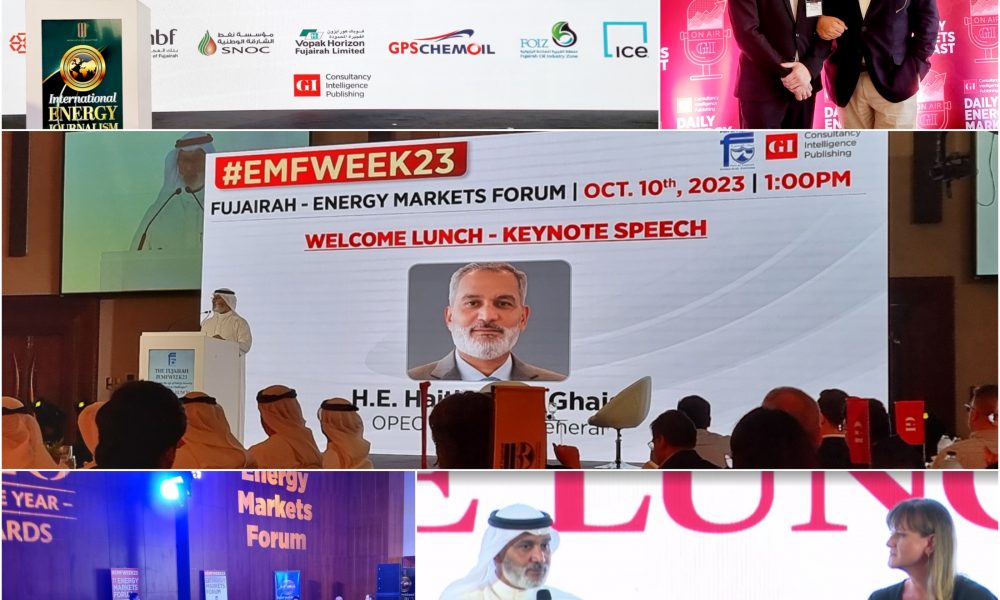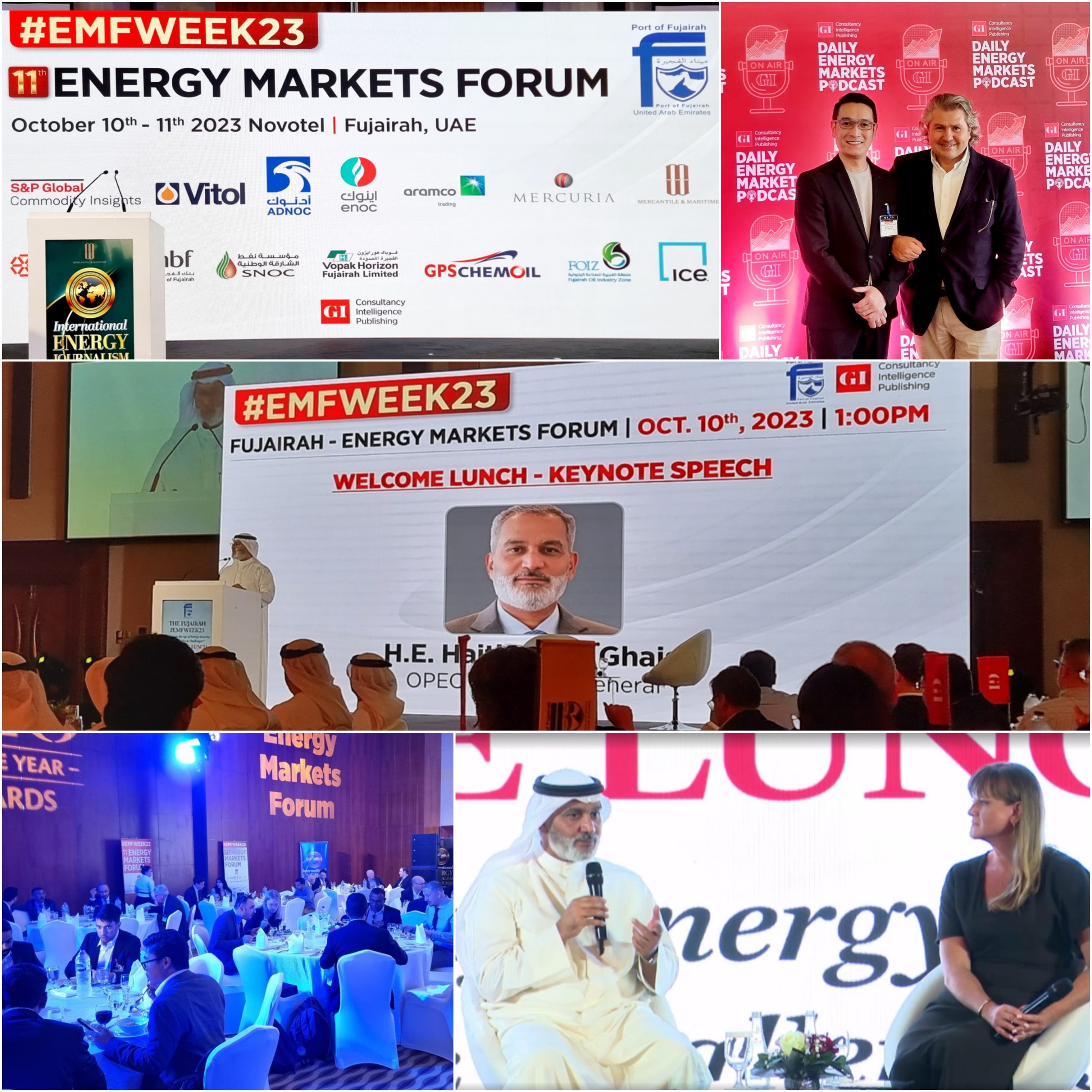
Gulf Intelligence: 11th Energy Markets Forum, Fujairah, United Arab Emirates
- Home
- /
- Media Hub Posts
- /
- Gulf Intelligence: 11th Energy...
Earlier this month, Gulfsands subsidiary, Gulfsands Middle East Limited in Abu Dhabi (“GMEL”) was represented by their Chief Operating Officer, Rodolfo Rustria, in attending the Gulf Intelligence 11th Energy Markets Forum hosted by the Port of Fujairah in Novotel Hotel, Fujairah, United Arab Emirates, under the patronage of His Highness Sheikh Hamad Bin Mohammed Al-Sharqi, Supreme Council Member and Ruler of Fujairah, UAE. The event was attended by experts and notable individuals in the fields of hydrocarbons, sustainability, energy security, energy transition, geopolitics, and complex energy markets.
The forum was themed “Navigating the Age of Energy Security: Opportunities and Challenges” and explored energy security and energy transition as being crucial components of a nation’s energy policy. It explored how the tension between the two concepts must be navigated and reconciled to satisfy a country’s energy demands, while addressing economic and environmental challenges that inevitably arise.
During the event, the Secretary General of OPEC, His Excellency Haitham Al Ghais, provided his insights into the world energy outlook. He predicted an increase in oil demand of 23%, meaning that about US$14 trillion of investment mostly in upstream will be required by 2045. He expressed concerns about the energy security of the world due to an anticipated 1.5 billion increase in population, along with around 500 billion individuals moving to cities. He noted that this growth in population will inevitably lead to a rise in the demand of energy resources. He also stressed the importance of countries and different stakeholders working together to address energy insecurities and avoid geopolitics turmoil.

Topical discussions included how the energy landscape is undergoing a significant transformation fuelled by the emergence of new trading routes, technological advancements, government subsidies, geopolitical tensions and rivalries, an increased focus on climate change, and regulatory barriers in the transition towards greener fuels away from fossil energy.
We live in a time of immense uncertainty for the global energy markets due to several factors, including the impact of the COVID-19 pandemic and the subsequent recovery efforts, the conflicts in Ukraine and weaponizing of energy, more frequent and severe global weather events, and international climate negotiations that have yet to bring about substantive change. Furthermore, multi-billion-dollar investment programs driven by subsidies for clean technologies have also emerged, and these factors are poised to reshape the energy markets for years to come. Against this backdrop, the “Plotting a Path to the Future” session explored emerging trends in the industry concerning the outlook for global and regional energy demands, greenhouse gas emissions, and fossil fuel consumption and how these recent events have shaped the global transition to clean energy.
Energy security and pricing are becoming big election issues as many major nations (including the US and the UK) are due to head to the polls in the next year. These political cycles may bring further volatility to the energy markets. The sessions explored these geopolitical matters including how US enforcement of sanctions on Iran, Venezuela, Syria, and Russia will evolve and how ongoing economic competition with China will reshape energy trade and currency markets. It also explored whether the US will successfully utilize the strategic petroleum reserve to balance oil markets and how this will compete with active management by OPEC+.
A thoroughly engrossing couple of days and congratulations and thanks to all involved in organising this fantastic event.
Stay Up to Date
Connect with us on LinkedIn and Twitter



